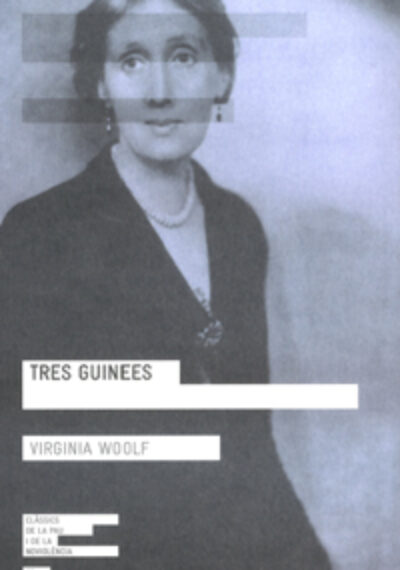
Virginia Woolf. Tres guinees. Institut Català Internacional per la Pau; Angle, 2011. Col·lecció Clàssics de la pau i de la noviolència, 3.
Virginia Woolf wrote Three guineas in response to a letter written by a man who asked her the question: How can we avoid war?. Written while the Spanish Civil War was being fought and during a period when Fascism was rampant throughout Europe, Woolf’s work is an insightful and analytical piece that inspires reflection and can be used as a lens for comparing different types of social organization. In this piece, the British author engages in a deep analysis of both the patriarchal system and militaristic fascism, and compares these models with the peaceful elements developed and used within circles traditionally dominated by women.
The new publication of this work is, in this way, an opportunity to return to Virginia Woolf’s Three guineas, to learn from her ideas concerning women’s liberation, and to review the values she upholds as tools that will bring us closer to peace and freedom.
The author
Virginia Woolf (London, 1882-1941) is considered to be one of the “mothers” of modern literature. Her best known works include Mrs. Dalloway, To the Lighthouse, and The Waves, the main characters of which use a range of symbols and metaphors to express their personal struggles and deepest feelings, while inviting the readers into their innermost thoughts and internal monologues. She also wrote essays, such as Three guineas and A Room of One’s Own. Woolf committed suicide in 1941, drowning herself in the River Ouse close to her home.
